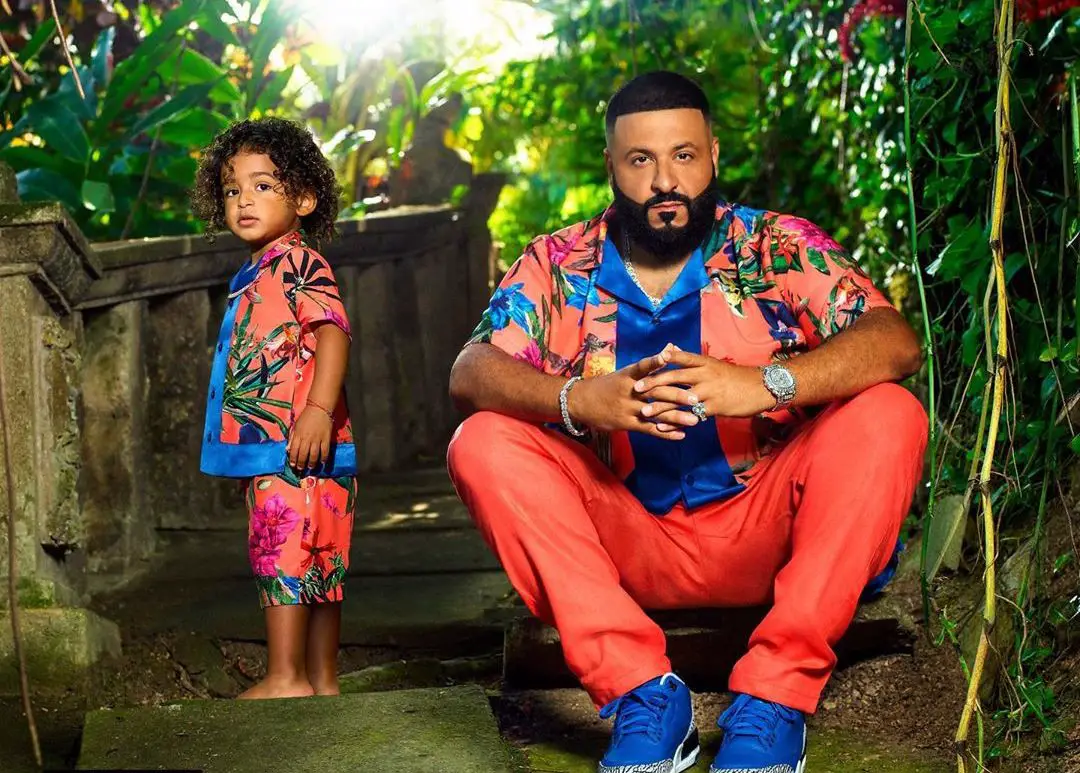Earlier this month, producer and self-help guru DJ Khaled released his long-awaited album, “Father Of Asahd.” Khaled announced the album’s roll-out date in late March, and after several weeks of intense promotion across multiple media platforms, “Father Of Asahd” was finally released.
The producer pushed the album on his personal Instagram as his main marketing platform. This was supplemented by interviews on several talk shows, with Khaled even making appearances on “Saturday Night Live” and at “The Kid’s Choice Awards,” where the musician performed several songs off “Father of Asahd,” alongside a few of the artists featured on the album.
Despite the hype, after the album’s release on May 17, critics expressed disappointment in Khaled’s newest work. Why has DJ Khaled’s self-proclaimed “most important album” been receiving so much flame from music critics?
“Father Of Asahd” is Khaled’s 11th album in the past 13 years. Although his last album went public nearly two years ago, critics have contemplated whether producing music at such a high rate allows Khaled to maintain his artistic integrity. Some claim that each of Khaled’s releases since his initial album in 2006 followed a similar formula, leading fans and the Rolling Stone to believe that “’Father of Asahd’ is certainly, as the man says, ‘another one.’”
Khaled’s newest album consists of 15 songs featuring 29 different artists. With the official drop date being May 17, it was surprising to fans that “Father Of Asahd” was already overplayed. Six out of the 15 tracks are singles, several of which were released long before the album dropped. Some of the more popular of these songs include titles such as “No Brainer” and “Just us,” featuring Justin Bieber, Chance the Rapper, Quavo and SZA.
Due to fans’ previous exposure to more than a third of the album, many were disappointed with how repetitive and tired Khaled’s tracks were. Critics claim “Father of Asahd” to be “boring to its core and beyond predictable.” This leaves listeners feeling that they may have wasted their time looking forward to the album’s release, or perhaps listening to the album at all.
“Father Of Asahd” has a guest list including more than several prominent celebrities, such as Beyoncé, JAY-Z, Cardi B and Travis Scott. Inviting big names in the music industry to contribute to his album was no mistake; Khaled set his release up for success long before it dropped in mid-May. With a following exceeding 15 million on Instagram, the producer provides each of the collaborators with a chance to expand their fan base. Similarly, each of the featured artists has a significant following of their own, allowing Khaled’s scope of exposure to increase exponentially.
https://www.instagram.com/p/ByMKiidhZgx/
While associating with other popular celebrities could be seen as a genius marketing technique to some, others cite it as a prime example of exploitation. These decisions have led fans to question Khaled’s motives for including these celebrities in the album. If Khaled claims to be “the best,” why does he feel the need to profit from the fame and hard work of other artists?
Another complaint concerning the featured artists on “Father Of Asahd” was the sheer number of them. Having 29 guest artists on an album leads to a wide range of artistic visions, voices and styles. While some may view this as a message concerning the importance of diversity and acceptance, others would disagree. Music critic Rawiya Kameir, for one, remarked, “The result [of having twenty-nine artists] is pure chaos.” A lack of cohesiveness between tracks is apparent, and some appreciate this fact while others are left confused.
Critics fail to find any sort of message, moral or story that can be associated with the album. Khaled expressed a goal to “own the summer” following the release of “Father of Asahd,” but both fans and critics agree that while “there are plenty of voices,” there is, “no clear message or intention” attached to the album.
This plurality of vision could be seen as a somewhat forgivable artistic crime if it weren’t for the fact that Tyler, the Creator dropped his ultra-emotional and daringly vulnerable album, “Igor,” on the same day. Many listeners could then compare the two albums side by side, leaving them craving for DJ Khaled’s album to have the same deeper meaning present in “Igor.”
Even with a long list of reasons why “Father Of Asahd” isn’t the most stimulating of albums, there are still several tracks that have captured the hearts of fans and critics alike.
“Wish Wish,” the second song on “Father Of Asahd,” seems to hit differently. Cardi B brings life to the lyrics in a way that could not have been achieved by many other rap artists. Many fans believe that Cardi B’s reunion with 21 Savage in “Wish Wish” feels almost like an extension of their previous collaboration, “Bartier Cardi.” With a tried-and-true power duo heading the album, this song leads listeners to want to finish it.
Lastly, It would be wrong not to mention the late Nipsey Hussel’s contribution to “Father Of Ashad” in “Higher” is the highlight of the album. Due to Hussel’s recent passing, this song in particular resonates with listeners and evokes emotion where other tracks in the album couldn’t. Hussel’s performance, according to Pitchfork, “offers a rare moment of depth and vulnerability on an album largely marked by inanity.” A standout piece, “Higher” is a song that makes the whole album worth listening to.












